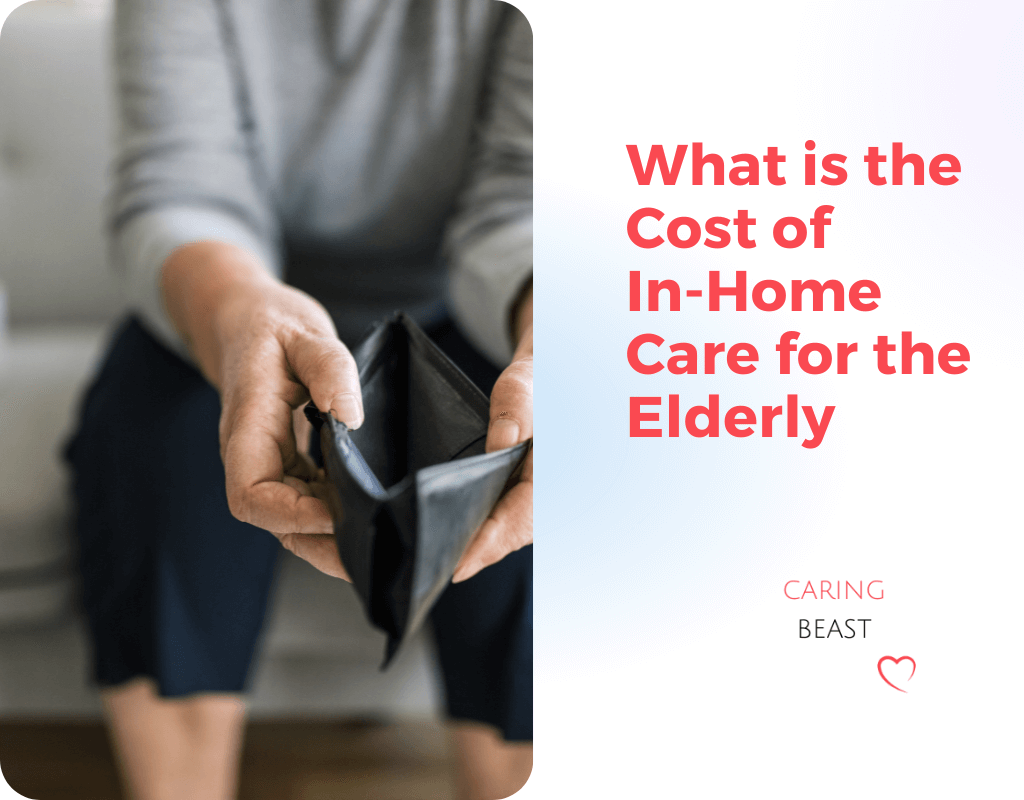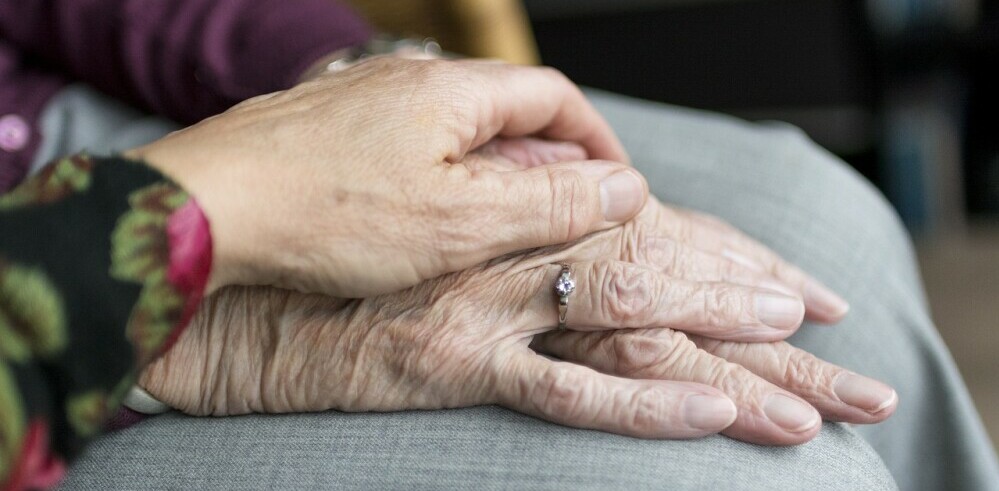As a home care agency owner, I got this question a lot. What is the cost of in home care for the elderly? In this article I will help you understand the costs associated with hiring a caregiver, the factors that determine those costs, and some options for helping you pay for it.
Types of In-Home Care
When considering in-home care, it’s good to know the difference between non-medical (or companion care) and medical care. These two are very different and I suggest you put together a plan of care to help you determine which type of care you need.
Non-medical in-home care, commonly known as homemaker or companion services, includes assistance with daily activities like cooking, cleaning, and personal care. Medical in-home care, on the other hand, often involves a home health aide who might provide more intensive support, like medication management or caring for someone with mobility issues.
It’s essential is that you start by choosing the level of care that meets the needs of your loved one. From there, it’s all about understanding the cost implications of that care—something I’m going to delve into next.
Private Caregiver or Home Care Agency
Should you hire a private caregiver or work through a Home Care Agency? The choice between using an in-home care agency or hiring an independent caregiver can swing the cost of in-home care quite a bit. Check out my article How to Hire a Caregiver – Private vs. Agency for more detailed information.
Agencies usually have more overhead to cover, so they charge more. However, they also tend to offer more comprehensive services, including backup care and rigorous screening processes. On the other hand, hiring independently can be less costly, but it may involve more work to find the right person and doesn’t always guarantee the same level of reliability and security. For more information, see my article on How to Find a Private Home Caregiver.
Cost of Hiring a Private Caregiver
The national average cost for in-home services fluctuates based on the type of assistance your loved one needs. For tasks like cooking, cleaning, and personal care, homemaker services average around $24 to $26 per hour. If medical assistance is required, a home health aide might be more appropriate, with average costs ranging from $25 to $27 per hour.
Part-time care, estimated at about 20 hours of support per week, typically ranges from $2,000 to $2,200 per month. If your situation necessitates a greater level of care, full-time assistance for 44 hours per week can hover between $4,200 to $4,500 monthly. Annually, this translates to an approximate cost of $50,000 to $54,000.
Then there’s around-the-clock care, which is often essential for those with advanced medical conditions or significant physical limitations. Opting for 24/7 care means your budget will need to be much heftier, with costs that can quickly exceed $10,000 a month. That’s over $120,000 a year, an amount that requires careful financial planning and consideration of available resources.
Next, I will show you the factors that can affect these averages. Location, the type of care, and who provides it all play a role in the final cost.
Factors That Determine In-Home Care Expenses
You’re probably wondering why there’s such a wide range in the cost of in-home care for the elderly. Well, several key factors play a part in determining how much you’ll need to budget. Let’s talk location first.
If you live in urban areas or regions with a higher cost of living, like New York or California, expect to pay more for in-home care services. It’s a simple supply and demand issue, along with regional economic factors that drive labor costs. A caregiver hired through an in-home care agency can cost you about $35/hour.
If it’s skilled nursing or specialized care for conditions like Alzheimer’s or Parkinson’s disease, the bills will typically be higher. This is because the care providers have specialized training and qualifications that are in high demand, and that expertise comes at a premium.
Easing the Financial Burden of In-Home Care
Let’s face it, in-home care is expensive. However, there are ways to manage these expenses while ensuring that your loved ones get the quality support they need.
First off, it’s crucial to explore all avenues of financial assistance that might be available to you. Medicare may not be the go-to for long-term care, but it could provide some relief for short-term needs, so it’s worth delving into those details.
Now, Medicaid is a different ball game, offering potential coverage for low-income seniors. It varies by state, though, so you’ll need to check the relevant programs where you live. Veterans, you’ve served your country, and there might be benefits waiting for you through VA programs like the Aid and Attendance benefit — make sure you’re not missing out on these.
Also, see my article on how to pay for in-home care for other options such as long-term care insurance.
Another option is opting for a family caregiver. This can substantially lower costs and keep care within the family. You may also be able to get paid being a family caregiver. But remember, caregiver burnout is real, so balance is key. Hybrid care models that mix professional help with family support and adult day services could provide a sweet spot, balancing cost with care needs.
In Summary
Always remember that your journey with in-home care is unique, and you’ll likely need to adjust plans as care needs evolve. In doing so, you’re honoring the needs of your loved ones with the dignity, compassion, and respect they deserve. And if you’re feeling overwhelmed, don’t hesitate to reach out for expert guidance to navigate this path.
If you have a question or want to share your experience, please leave a note in the comment section below.
Here’s a little transparency: Our website contains affiliate links. This means if you click and make a purchase, we may receive a small commission. Don’t worry, there’s no extra cost to you. It’s a simple way you can support our mission to bring you quality content.
Recommended For You

Caregiver ADL Checklist – Free Download
Getting out of bed in the morning, brushing your teeth, taking a shower, and eating breakfast are activities many of us do without giving a second thought. However, according to …

Medical Marijuana For Seniors – No Longer the “Evil Weed”
Doctors across the country are calling for a re-think of current government policies, in terms of allowing medical research on medical cannabis, as elderly patients see dramatic results to treat pain. Most seniors would tell you that smoking marijuana was not on their top 10 list of things to do.

Home Caregiver Pay Rate
You have weighed the choice of how to hire a caregiver – private vs. agency and have decided you want to hire your own private independent caregiver. Now, how do you determine what the going home caregiver pay rate is? Before we look at that, it’s important to understand what

Senior Fall Prevention Checklist – Download For Free!
Every year, millions of older adults fall at home and falls are the leading cause of injury-related emergency department visits, hospitalizations and deaths. In this article I will show you how you can prevent falls using a simple senior fall prevention checklist. Take a minute to download this free checklist

Gay and Aging – Going Back In The Closet?
Sally I still remember that day when I met Sally. She had just been released from the hospital after a recent fall and needed help with bathing and basic chores around the house. I owned an in-home senior care agency in Palm Springs, CA and Sally had been referred to

9 Questions to Ask When Choosing an In-Home Care Agency
When looking for an in-home care agency, referrals from someone you trust are golden. Good, reputable agencies will have a favorable reputation in the community so ask a trusted health care provider, family member or friend to see who they know. Once you have the names of several providers, you



